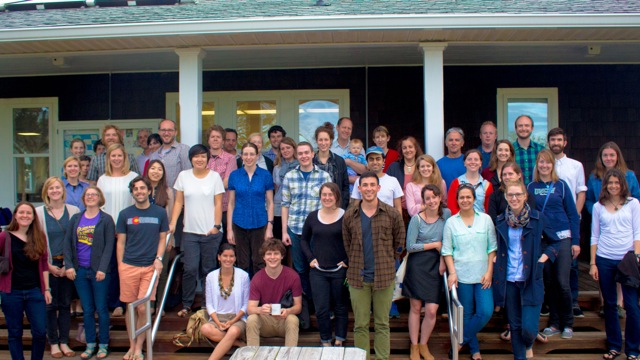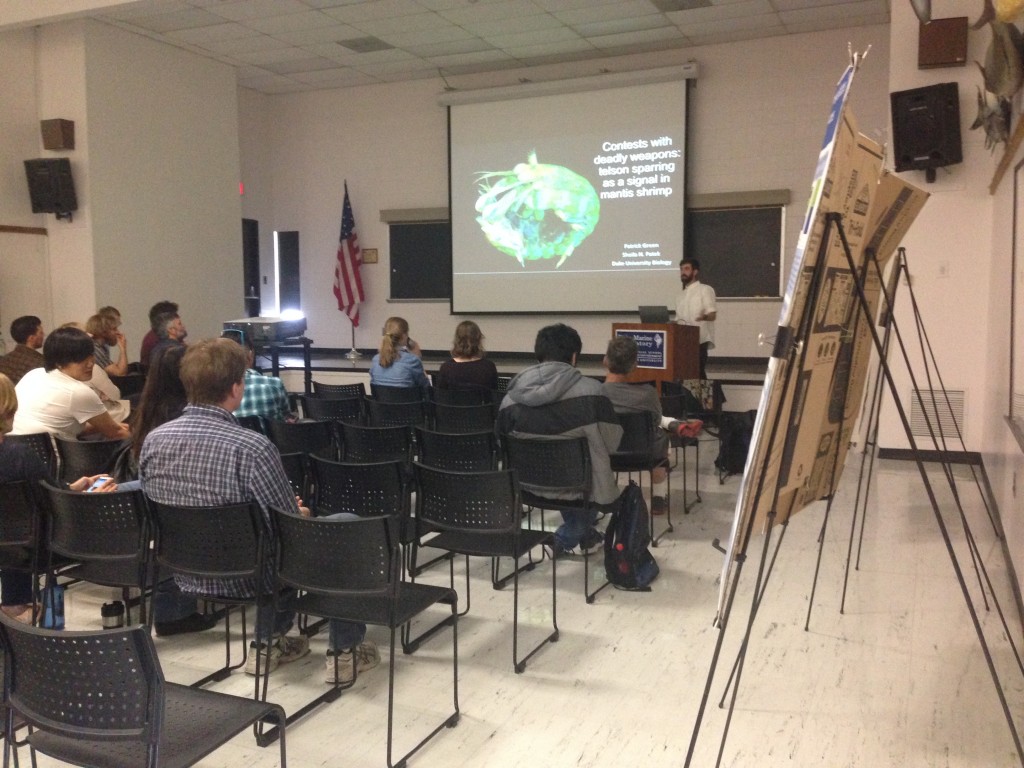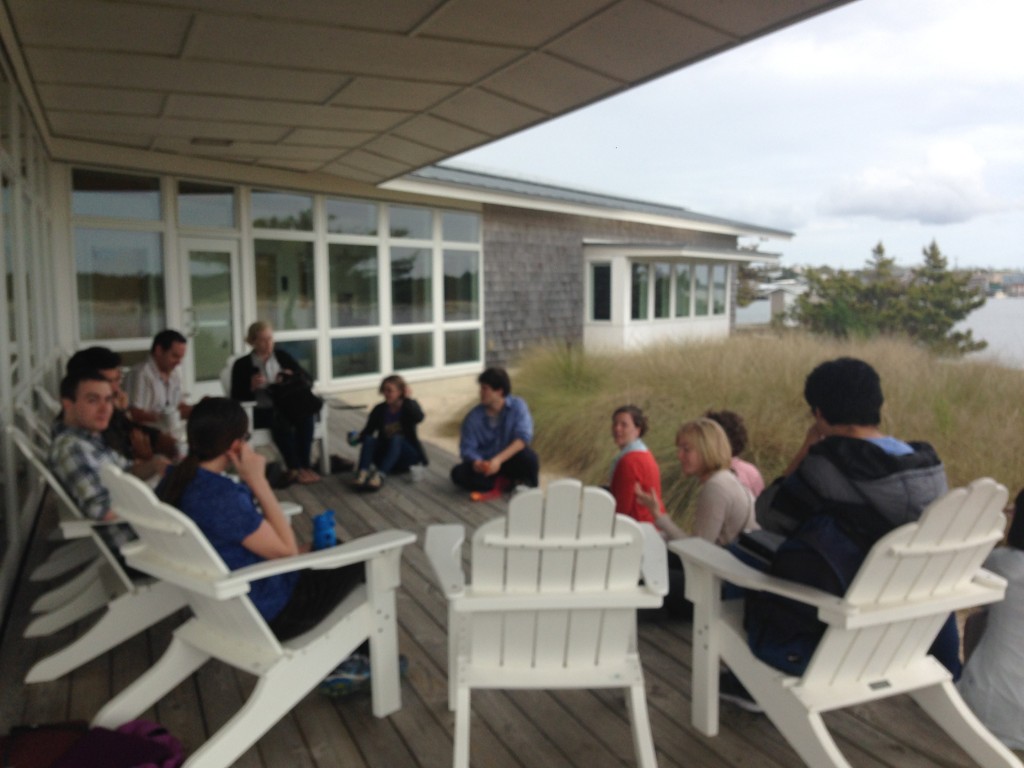People start clearing their plates and going back to the kitchen for cookies and coffee while I listen to the conversation and clinking dinnerware sounds filling the small Marine Lab dining hall. I sit at a table with Marine Lab PhD students and Ecology PhD students from main campus, my two separate worlds together under one roof.
One year ago I left my comrades in the University Program in Ecology and moved to the Marine Lab, a 156 mile drive from Durham. I saw these friends and colleagues during the handful of times I went back to main campus, but last weekend was their turn to visit the Marine Lab, where we hosted the 2nd annual Duke Ecology Symposium.

The symposium thoroughly exceeded my expectations, and the Marine Lab location fostered a tight-knit community atmosphere for the 70 attendees. A committee of UPE PhD students planned the event down to every detail, and we enjoyed the fruits of our labor through scientific conversations, engaging presentations, and socializing.
We toured our visitors around the Marine Lab on Friday afternoon before the event kicked off with a poster session. The inherently large breadth of the field of ecology ensured you could learn something new at each poster. I stood in front of mine and described it to those who were interested, welcoming their input. One of the best takeaways from a research gathering is gaining feedback from people who think about things differently than you do.
One of our keynote speakers, Dr. Jim Elser from Arizona State University, then gave a seminar on Friday evening (see links to keynote talks below). Dr. Elser is a distinguished scientist whose lab researches biological stoichiometry, and talking with him about my research was one of the highlights of the weekend because of the different perspective he offered.
Saturday morning started with our next keynote speaker, Dr. John Bruno from University of North Carolina at Chapel Hill. He explained his lab’s studies on the effect of temperature on marine community structure, and refreshingly and humorously shared the realities of doing this kind of research. On Saturday we also heard from 18 graduate students and postdocs who presented their own work during oral presentation sessions. The event’s location allowed many more Marine Lab students to present this year. Again, the broad nature of the field of ecology allowed the audience to learn about a new system with each talk. I learned about signaling in black widow spiders, potential for recovery in coral reefs after a disturbance, peculiarity of bright coloration in cleaner shrimp and fish since cleaner shrimp are actually colorblind, gray seal movement timed by predation risk, and changing migration patterns of sooty terns.

On Saturday afternoon, attendees gathered at one of three professional development breakout sessions led by keynote speakers and faculty. Dr. Bruno led “Science in a cash-strapped world,” and a large group of mostly PhD students gathered in a circle on the porch of Repass. Dr. Bruno candidly shared his experiences with grants and funding, and welcomed questions from worried students.

Our last keynote speaker on Saturday was Dr. Sonia Altizer from University of Georgia, who captured our attention with the concept of migration as a means to avoid infectious disease. She spoke about her lab’s research on the migration and disease dynamics of monarch butterflies. I learned that the milkweed available for sale in the U.S. is tropical milkweed, which does not die off in autumn like milkweed native to North America. If someone plants milkweed in their garden in an attempt to provide these butterflies with food and a place to lay eggs, they should cut the milkweed in autumn so that butterflies will continue to migrate south to Mexico. This migration is necessary for preventing disease.
The symposium received great reviews from faculty and students, and a first-year student thanked us for organizing the event because she made connections with researchers who she would not have otherwise. I enjoyed talking with fellow UPE students again and having my Marine Lab and UPE counterparts on the same island. We’ve determined that at least every few years we will host the Duke Ecology Symposium at the Marine Lab, a form of progress in our continuing efforts to bridge connections between Marine Lab and main campus researchers.
You can watch the keynote speakers’ talks using the links below:
Dr. Jim Elser: Biological stoichiometry of nutrient limitation in ecology and evolution
Dr. John Bruno: Metabolic scaling in marine ecology to better understand marine community structure
Dr. Sonia Altizer: Long distance migration and infectious disease dynamics

